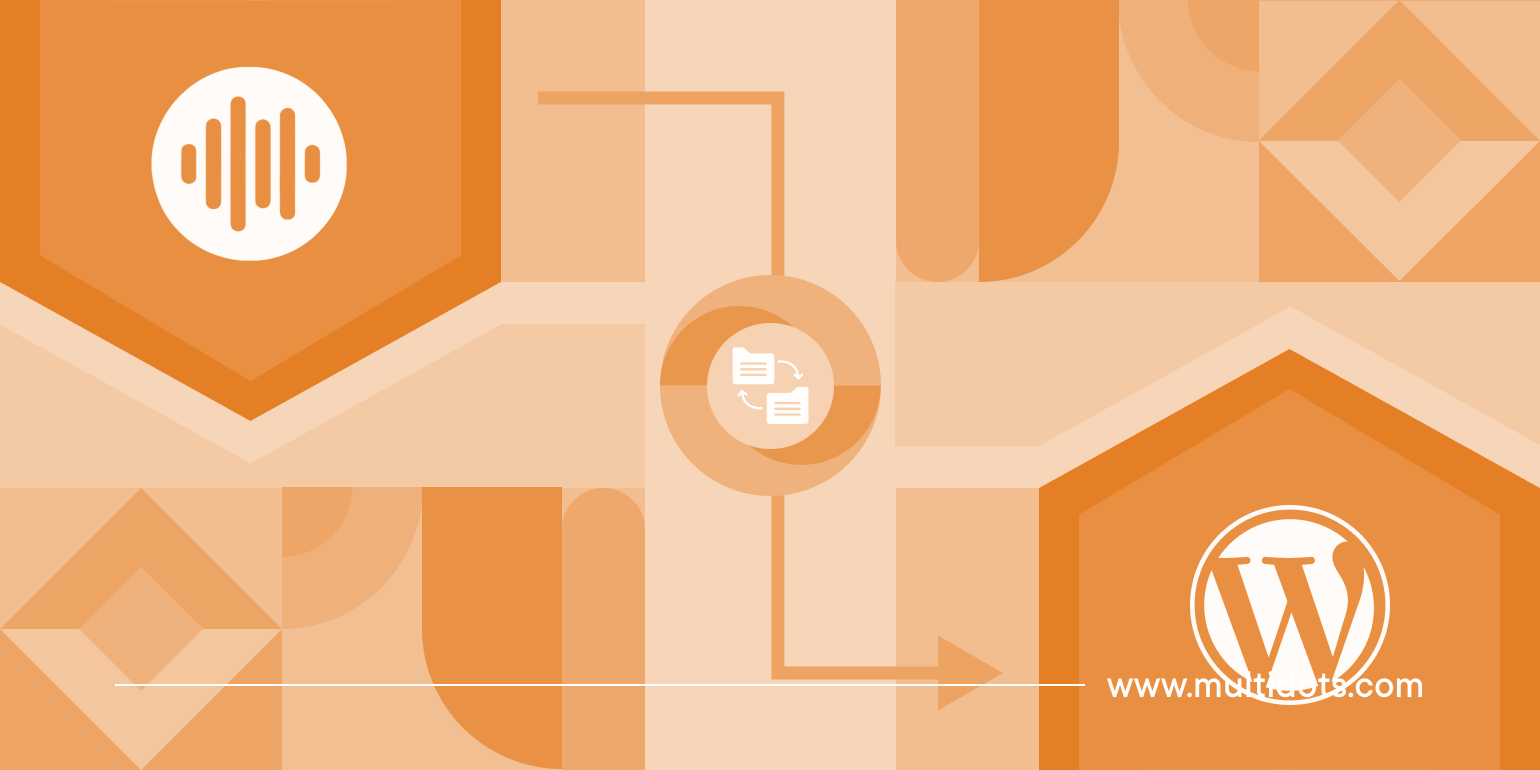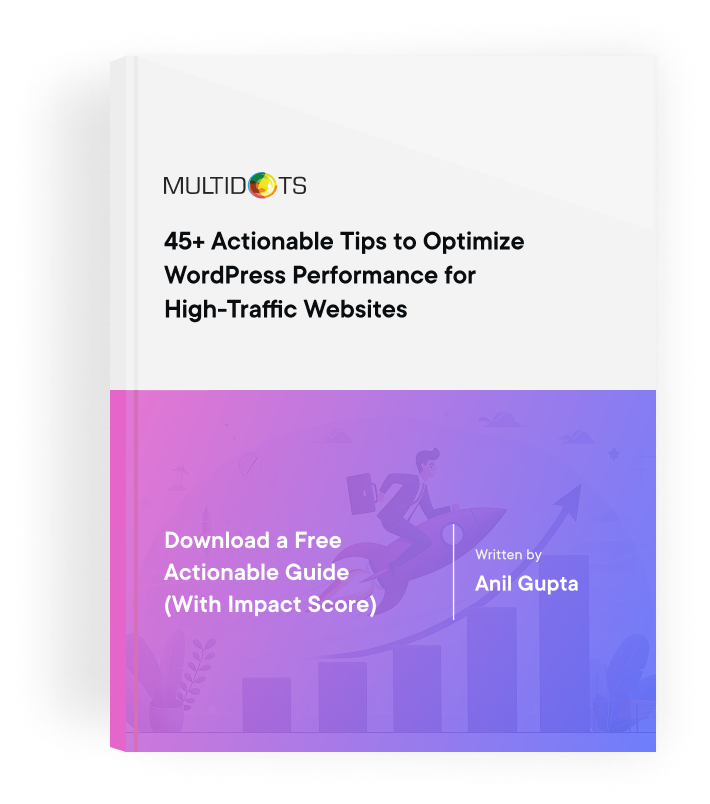5 Steps to a Successful Chorus to WordPress Migration
Learn the steps involved in migrating from Chorus CMS to WordPress

Table of Contents
Since Vox Media announced Chorus’ end of life, most businesses migrated their websites away from the platform. However, the ones that are still on the platform have to face a lot of issues without adequate support or any kind of security updates.
Rather than battling with these issues, it is better to transition to a powerful CMS like WordPress that can not only offer all the features you enjoy on Chorus but also give you adequate support and extension of functionalities using plugins.
That said, a successful Chorus to WordPress migration might sound like an easy choice, but the process is not that simple. Let us look at the steps involved so you can make an informed decision on whether to proceed with the migration in-house or outsource to an experienced agency.
Preparation and Planning
Before initiating a CMS migration, you must conduct due diligence on all your website assets so that the transfer happens seamlessly. Carry out a comprehensive audit of your current Chorus website to identify its strengths and weaknesses. You’ll get a better understanding of the features you want to retain and the ones you want to update post-migration.
Based on the audit results, you can come up with a detailed migration plan outlining the scope of the CMS migration, tasks to be conducted as part of it, and the people who will be responsible for it. Creating a migration plan and a Chorus to WordPress migration checklist will also help ensure the data transfer happens smoothly and securely.
Here are some considerations to keep in mind while creating your migration plan:
- Define the goals, scope, and timeline of the migration
- Outline the assets and data to be transferred to the new CMS
- Designate roles and responsibilities for the people who will take part in the data migration
- Note down the tasks required to be carried out pre-migration, during, and post-migration
- Define the key success criteria and metrics to be used for measuring performance
Choosing the Right Tools and Services
Even if you are planning to conduct your Chorus to WordPress migration manually, the latter offers a plethora of plugins that can help you streamline the process of transferring your data and content.
Here are some of the key plugins you can consider using:
- WP Migrate: This paid plugin will help you migrate all your content from the source website to WordPress seamlessly, without data corruption.
- Jetpack (VaultPress): A comprehensive paid plugin that offers features to automate almost every part of the migration process.
- All-in-One WP Migration: A robust migration plugin useful for migrating large sites having huge content volumes.
If you lack the resources or the expertise required to migrate to WordPress effectively, consider opting for migration services or agencies with adequate experience facilitating Chorus to WordPress migrations. With the help of the right agency, you can outsource the entire migration project and be assured that every bottleneck or issue will be handled with expertise.
Execution of Migration
A successful Chorus to WordPress migration can be straightforward or complex, based on the approach you take towards it. Aside from certain special considerations, most parts of the process will work like any other CMS migration.
That said, you must first decide whether to conduct the migration manually or with the help of tools and plugins. Before starting the content migration, ensure you have installed the WordPress environment and set up your hosting account. With these steps out of the way, all you have to do is create a database on the server using a tool like PHPMyAdmin and start transferring your content.
When exporting content from your Chorus database, ensure you select only the necessary data and exclude content that does not work for your website anymore. CMS migrations can hit your website hard at times, and affect some of the functionalities, and even your search engine rankings.
To ensure operational continuity, create a comprehensive list of all the integrations and third-party APIs that play an important role in running your Chorus website. This simple action can help you gauge the ones to be migrated or replaced, and prioritizing them during migration will help ensure that they are transferred to the new CMS.
In terms of SEO performance, take stock of all your existing metadata, and record the existing and revised URL structures diligently. While CMS migrations can cause your search engine rankings to drop, you can minimize the negative impact with proactive measures.
Set up 301 redirects to preserve the value of your web pages, and try to resolve all the 404 errors. If your website works well as it is, and you are only migrating due to Chorus’ end of life, consider making only minimal and necessary on-page website design changes. Keep the mobile readiness of your website at the top of your priority list right from the beginning to maintain steady SEO performance.
To ensure that your website is ready to handle the additional traffic that comes your way, you should also optimize your website's performance in terms of user experience. Here are some tips that will help you in the process:
- Work on improving your website and page loading speed
- Choose a responsive theme, or opt for a custom theme to have more control over the designing process
- Ensure that your website meets the necessary accessibility standards, and enhance the readability of your content
- Utilize white space instead of filling your web pages with content to reduce cognitive overload among users
Testing and Optimization
By the time your Chorus to WordPress migration is complete, your website might have gone through quite a few changes. While these changes will begin yielding results in the long run, your website may experience sluggish performance or suffer in terms of SEO, if you are not careful.
To avoid these kinds of issues, ensure a thoroughly planned post-migration phase, on a staging website and implement major changes to your actual website only after you are sure they won’t harm your website performance.
Some of the actions you want to consider taking post-migration include:
- Testing all the functionalities and features
- Cross-checking whether the content transfer was accurate
- Setting up redirects and error pages wherever applicable
- Testing for mobile responsiveness and user experience across devices
- Sorting and organizing all your content into actionable categories, and taking respective actions
WordPress offers a lot of free and paid plugins like Nitropack and WP Rocket to help you optimize your new website’s security and performance. Consider installing the ones that you consider relevant to your requirements.
Ongoing Maintenance and Support
Most of your post-migration phase is about conducting regular audits on your newly migrated WordPress website, and ensuring that it achieves the goals you have set in place. However, consider this process a marathon rather than a sprint.
Conducting consistent and periodic audits on your website is much more beneficial than conducting comprehensive tests just once. Keep monitoring the results and be on the lookout for any red flags so you can eliminate any potential issues in advance. Enable regular website maintenance mechanisms for all the features, plugins, and overall website design and content to avoid most security and functionality issues.
Seek user feedback through surveys or user testing processes, to continuously improve and adapt to users’ expectations of your website performance and functionalities.
Wrapping Up
A successful Chorus to WordPress migration starts with getting the planning and pre-migration steps right. Once you have made adequate preparations to ensure the security and accuracy of your content, you can start migrating it either manually or using one of the many powerful migration plugins offered by WordPress. Once done, implement comprehensive measures during the post-migration phase so that your website aligns with your business goals and delivers consistent performance.
It is always a good idea to hire an experienced WordPress development agency like Multidots to handle your migration process. Contact us to discuss your migration requirements and let us handle the rest.
Feel free to schedule a quick call with our migration expert.
Contact Us
